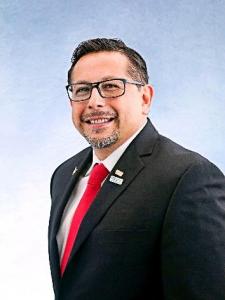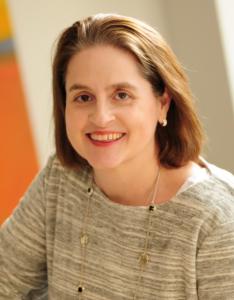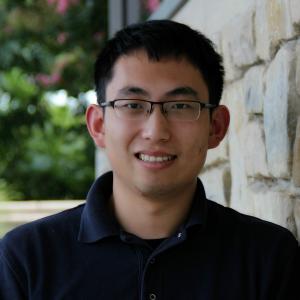
The AAA LongROAD study is the largest prospective older driver study in the world. Recruitment of the 3000 subjects across the country began in 2015, and finished in 2017. Two years of the five years of data collection on each subject has been completed. Independent variables include social factors, physical health, including medications, mental health, cognitive, types of cars, and lifestyle habits (e.g. alcohol, smoking, exercise). Outcomes of interest include driving patterns, safety measures, crashes, injuries, death and driving cessation. The Training, Research and Education for Driving Safety (TREDS) program at UCSD conducts public health interventions to a wide audience, from teens to law enforcement. Examples of these outreach programs will be provided.
Dr. Hill, MD, MPH is a Professor in the Department of Family Medicine and Public Health at UCSD. She is Director of the UCSD/SDSU General Preventive Medicine Residency, and Senior Staff Physician at San Diego Family Care. She is the Director of the UCSD Training, Research and Education for Driving Safety (treds.ucsd.edu), and the Center for Human and Urban Mobility, and directs the AAA Foundation for Traffic Safety LongROAD study (San Diego site). Her driving safety work is greatly enhanced by the collaborative efforts with colleagues at UCSD, with expertise in robotics, computer science, neuroscience and engineering.

Mr. Ortiz will be providing an overview on how private sector firms like ADVANTEC are assisting public agencies and developers on keeping pace with the rapid changes of transportation technologies and preparing agencies for the future by integration of connected and automated vehicles (CAV) and various smart cities technologies.
Mr. Ortiz is the Chief Operating Officer and Principal at ADVANTEC Consulting Engineers, an Irvine based planning, design, operations, and technology firm. Mr. Ortiz has extensive experience managing Intelligent Transportation System (ITS) projects for numerous agencies throughout California. He has 30 years of experience, exclusively in the field of ITS and traffic engineering. Through his current projects, Mr. Ortiz is assisting agencies to understand the Smart Cities and Connected Vehicles and Autonomous Vehicles markets, so they can make better decisions on current and future ITS deployments. Mr. Ortiz serves on the Board at Institute of Transportation Engineers (ITE) International and Western District International Director. Mr. Ortiz also serves on ITE’s Transportation Systems Management and Operations Council (TSM&O), ITE Transportation Consultants Council and ITE’s Advocacy Committee. Mr. Ortiz also serves on the Board at ITS California, where he serves as the ITS Southern California Section Chair and Partnership Chair. Mr. Ortiz graduated with a BS in Civil Engineering from California State Polytechnic University, Pomona, and he serves on the Industry Advisor Committee. Mr. Ortiz holds a Civil Engineering license in the states of California and Arizona. He is also registered as a Traffic Engineer in the State of California and he is certified as a Professional Traffic Operations Engineer (PTOE).

On average, a driver spends nine minutes per search of a parking spot which accumulates to approximately 17 hours a year. Thus, delivery companies are actively looking for alternatives in urban areas and are considering ideas such as drones and sidewalk robots. Another idea is the use of autonomous vehicles because they are able to remain in continuous use. One model has the self-driving vehicle drop a delivery person off and pick him/her up after each set of deliveries is made. We model this variant to gain insight into the value of autonomous vehicles to improve delivery efficiency, particularly through the ability to avoid the need to find parking. This talk introduces the Capacitated Autonomous Vehicle Assisted Delivery Problem (CAVADP). We model and provide an analytical solution to the CAVADP on a complete grid, which can represent a downtown environment. We also discuss experimental results when compared with the Capacitated Delivery Problem with Parking (CDPP). We are able to demonstrate significant changes in cost and structure of the optimal solutions. The talk will conclude with a discussion of our planned future work in this area.
Ann Melissa Campbell is the Tippie Professor of Management Sciences at the Tippie College of Business at the University of Iowa. She holds a PhD in Industrial Engineering from Georgia Institute of Technology. Her research activities focus on the development of solution techniques for new and emerging freight transportation problems, such as same day delivery, emissions reduction for routing, and the use of autonomous vehicles for deliveries. She is the president-elect of the Transportation Science and Logistics Society of INFORMS and has won an NSF CAREER award. She serves as the PhD coordinator for the Department of Management Sciences at Iowa and is the author of many papers published in Transportation Science and EJOR, among other journals.

To better understand the nature of service delivery in the sharing economy, we conducted a comparative analysis of the technology features and website branding of three exemplar ridesharing platforms – Uber®, BlaBlaCar® and Zimride®. To facilitate our theorizing of this multiple case study, we applied literature on service design to our collected data. This helped us to undercover each platform’s assumptions and technology affordances for service interactions between providers and customers. It also enabled us to characterize each platform’s governance concern and mechanism, th
Anita D. Bhappu is Acting Associate Professor of Management in the School of Engineering at the University of California, Merced. She received her B.S. in Chemical Engineering, as well as her M.S. and Ph.D. in Management, from the University of Arizona. Dr. Bhappu conducts research on team collaboration, workplace diversity, service delivery and digital retailing. More recently, she has been studying the sharing economy and exploring how organizations can build employee engagement and inclusion by promoting collaborative consumption among coworkers. She is the Founder and CEO of Sharing Tribes LLC, a startup company that is developing a software-as-a-service platform based on this research. Dr. Bhappu has published in top-tier journals such as the Academy of Management Review, Internet Research, Journal of Applied Psychology, Journal of Service Research, Organizational Behavior and Human Decision Processes and Management Information Systems Quarterly Executive. She serves on the editorial board of Organization Science. Her research and market insights have been featured in Fast Company, Huffington Post, Marketplace, Marketwatch, Mother Jones, Slate, Time, The Washington Post and USA Today. Dr. Bhappu was previously on the faculty at the University of Arizona and Southern Methodist University. Prior to academia, she worked as a product development engineer for Procter and Gamble.

Transportation systems today will soon be transformed profoundly due to two recent technology advances: Connected Vehicle (CV) and Autonomous Vehicle (AV). Such transformation leads to the creation of a series of next-generation transportation systems such as smart traffic lights and self-driving cars, which can substantially improve the quality of our everyday life. However, this also brings new features and operation modes into the transportation ecosystem, e.g., network connectivity and machine learning based sensing, which may introduce new security problem and challenges. In this talk, I will describe my current research that initiates the first effort towards systematically understanding the robustness of the software-based control in CV and AV systems. Specifically, I will first describe my work that performs the first security analysis of the next-generation CV-based traffic signal control, which discovers new vulnerabilities at the traffic signal control algorithm level that can be exploited to create massive traffic jams. Next, I will describe my work that performs the first security analysis of LiDAR-based object detection in AV systems. I will conclude by discussing defense directions for the discovered problems, and also future research directions in securing emerging CAV systems.
Qi Alfred Chen is an Assistant Professor in the Department of Computer Science at the University of California, Irvine. His research interest is network and systems security, and the major research theme is addressing security challenges through systematic problem analysis and mitigation. His research has discovered and mitigated security problems in systems such as next-generation transportation systems, smartphone OSes, network protocols, DNS, GUI systems and access control systems. Currently, his focus has been in smart systems and IoT, including transportation and autonomous vehicle systems. His work has high impact in both academic and industry with over 10 top-tier conference papers, a DHS US-CERT alert, multiple CVEs, and over 50 news articles by major news media such as Fortune and BBC News. Chen received his Ph.D. from the University of Michigan in 2018.

In this talk I will discuss the operational and societal aspects of autonomous mobility-on-demand (AMoD) systems, a rapidly developing paradigm of transportation wherein mobility is provided on demand by robotic, self-driving vehicles. Specifically, I will discuss AMoD systems along three dimensions: (1) modeling, namely mathematical frameworks capable of capturing the salient dynamic and stochastic features of customer demand, (2) control, that is coordination algorithms for the vehicles aimed at throughput maximization, and (3) societal, entailing system-level studies characterizing the interaction between AMoD and other infrastructures, such as the electric power and public transit networks. I will conclude the talk by presenting a number of directions for future research.
Dr. Marco Pavone is an Associate Professor of Aeronautics and Astronautics at Stanford University, where he is the Director of the Autonomous Systems Laboratory and Co-Director of the Center for Automotive Research at Stanford. Before joining Stanford, he was a Research Technologist within the Robotics Section at the NASA Jet Propulsion Laboratory. He received a Ph.D. degree in Aeronautics and Astronautics from the Massachusetts Institute of Technology in 2010. His main research interests are in the development of methodologies for the analysis, design, and control of autonomous systems, with an emphasis on self-driving cars, autonomous aerospace vehicles, and future mobility systems. He is a recipient of a number of awards, including a Presidential Early Career Award for Scientists and Engineers from President Barack Obama, an ONR YIP Award, an NSF CAREER Award, and a NASA Early Career Faculty Award. He was identified by the American Society for Engineering Education (ASEE) as one of America’s 20 most highly promising investigators under the age of 40. His work has been recognized with best paper nominations or awards at the IEEE International Conference on Intelligent Transportation Systems, at the Field and Service Robotics Conference, at the Robotics: Science and Systems Conference, at the ROBOCOMM Conference, and at NASA symposia. He is currently serving as an Associate Editor for the IEEE Control Systems Magazine.









